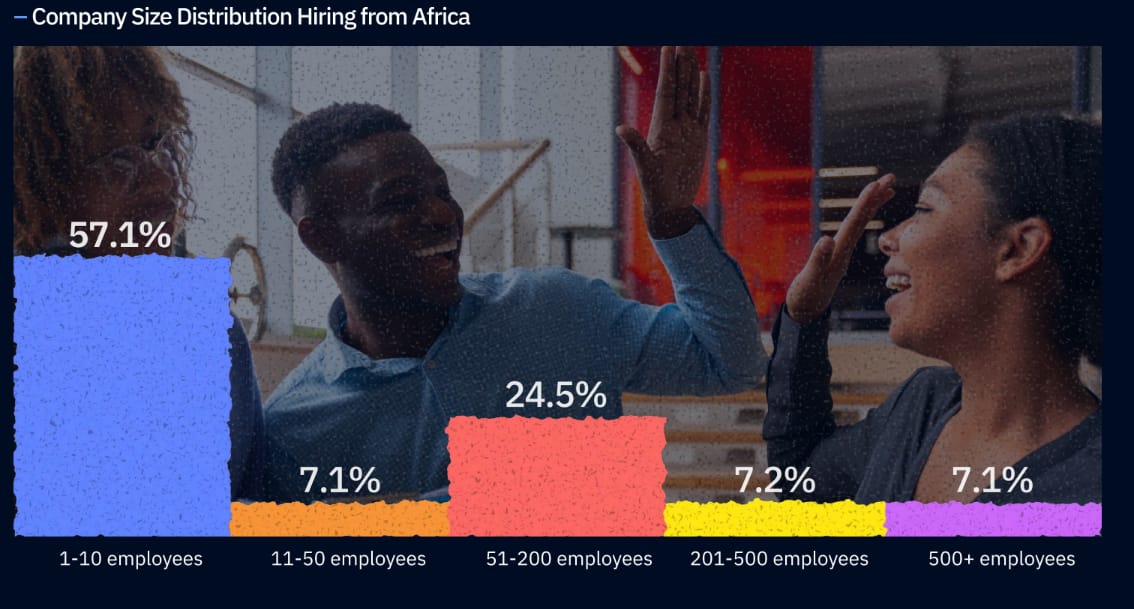- Tech Safari
- Posts
- Too Remote to Work Remotely
Too Remote to Work Remotely
Inside the unfair fight for global opportunity.
Hey, Sheriff here 👋
If you work remotely from Africa, I have a question for you.
How often does your internet go off in you in the middle of an important call? Whatever your answer is you’re not alone.
This week, we’re diving into the biggest roadblock for Africans who work remotely: infrastructure.
But before we start, I have something to share….

Tech Safari Mixer - Cape Town 🇿🇦
We're one week away from seeing you in Cape Town 👋🏾
Next Wednesday, November 12th, we're back in the Mother City for another Tech Safari Community Mixer!
Expect an evening of high-quality connections with founders, builders, investors, and creators shaping Africa's tech future.
Plus, great food, drinks, and a few surprises.
🎟️ Grab your tickets before the price increases – Early bird tickets sold out in days, and we're down to the last set of regular tickets. Prices go up soon, so secure your spot now!
See you in Cape Town! 🇿🇦
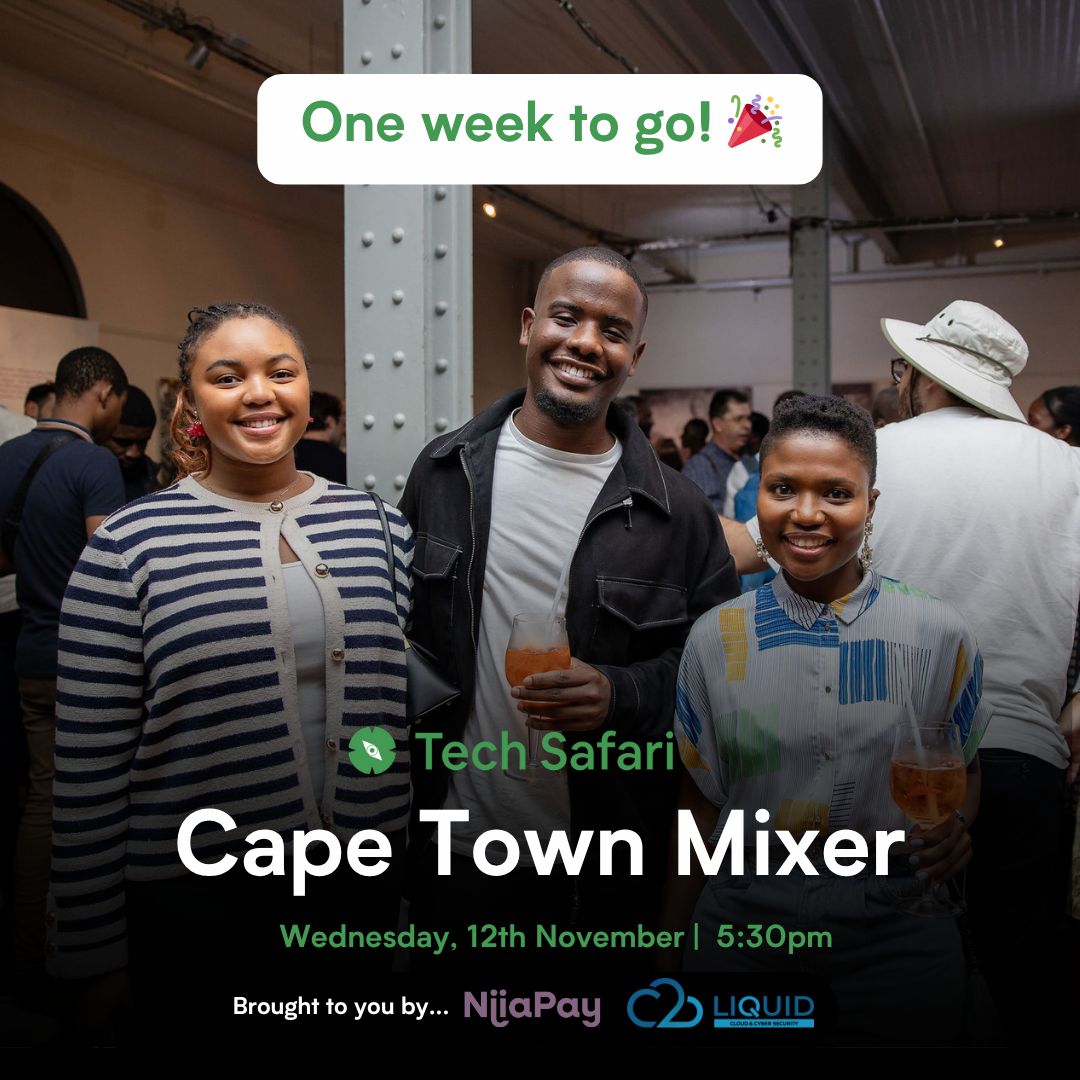
Now, on to this week’s story….

There are events that split the world’s timeline in two.
Like the Industrial Revolution or the Birth of Christ.
Sometimes, we make dates out of them, like BC and AD.
Five years ago, we had one of those events: COVID-19.
It changed many things: global trade, public health, the economy, and even how we work.

Remember when we all had to stand 6 feet apart from each other?
And while many things are back to normal, one thing remains: remote work.
Across the world, remote work has been important. It’s changed team cultures and company expenses.
But in Africa, it’s changed lives.
Young, skilled Africans now find lucrative jobs halfway across the world, as software engineers, designers and writers.
And they earn more than they normally would in their home country, without ever leaving.
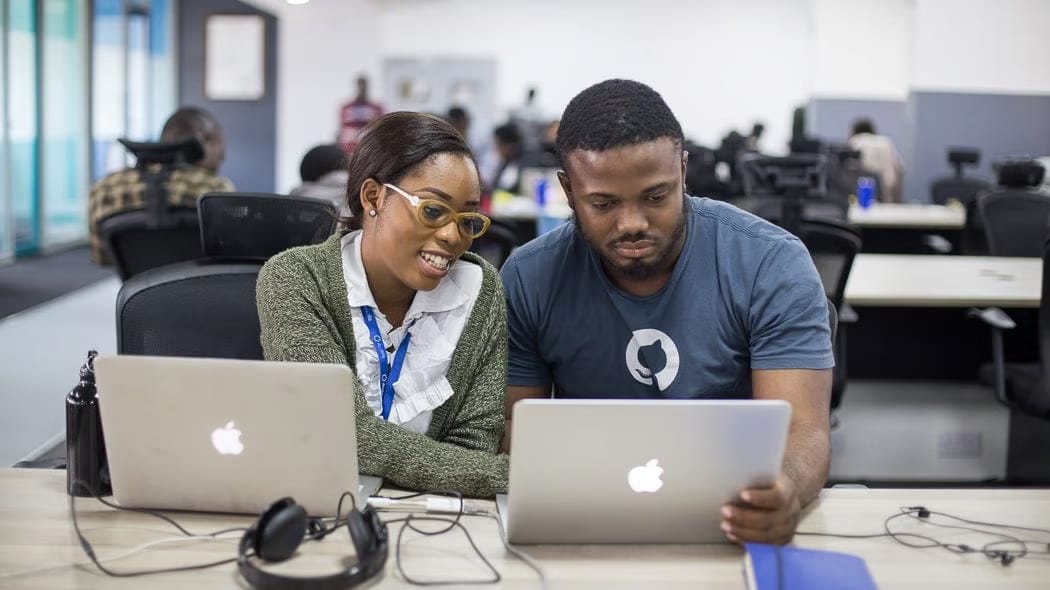
Andela, a Nigerian startup, had started training engineers for global remote work since 2016, but remote work didn’t become widespread until 2020.
Some people are seeing this as more than a trend.
They’re banking Africa’s future on it, calling it…
The Demographic Dividend
Across the world, the working population is quietly aging out of the workforce.
The median age in Europe is 43. In Asia, it’s 33. In North America, it’s 39.
In 20 years, the average worker in these places will either be retired or close to it.
But here in Africa, the median age is 19.
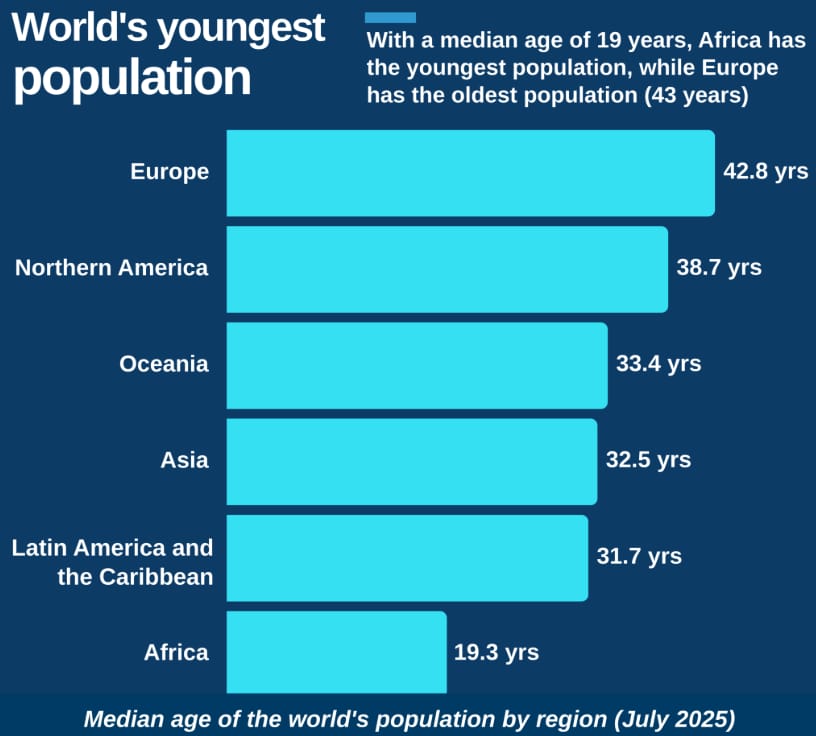
Half the population of Africa is made up of teenagers
That’s a population with most of its working life ahead of it.
This is where the demographic dividend comes into play.
It’s the prediction (or fantasy) that as more workers age out of the workforce globally, it will create an opening for Africa.
We get to become a global supplier of labor, and our economies will reap rewards in the process, whether through remittances or local spending.
Today, Africa is seeing the first paychecks of that dividend, thanks to remote work.
And data from Rayda, an IT procurement startup for global teams, backs this up.
Earlier this year, Rayda surveyed over 1,000 tech workers across Africa’s biggest ecosystems: Nigeria, Kenya, Egypt, South Africa, Ghana, and Rwanda.
Then they questioned 67 global companies who’ve hired talent from Africa.
And here’s what they found.
Africa is loved for more than just its young workforce.
Its time zones overlap with business hours in Europe, Asia, and North America.
Its young population grew up on the internet, making them more accustomed to digital work.
And Africa is multilingual, with English, French, and Arabic speakers, making it a good place to find non-English speaking employees.
It’s no shock that 62% of companies surveyed said they’re actively hiring across Africa.
But while there’s interest in African talent, data from over 1,000 remote teams of different sizes across US and Europe show us something different.
Only 1 out of every 10 remote employees is African.
On the other hand, 7 out of 10 remote workers are Asian.
So, if the world is showing more interest in African talent, why is the headcount still so low?
The answer: Infrastructure
Working remotely in Africa comes with big hairy challenges, like:
1. Power/electricity
Nearly 600 million Africans still lack access to electricity. That’s roughly half the continent.
Even when connected, blackouts and load-shedding are common.
And the average Nigerian has only six hours of electricity every day.
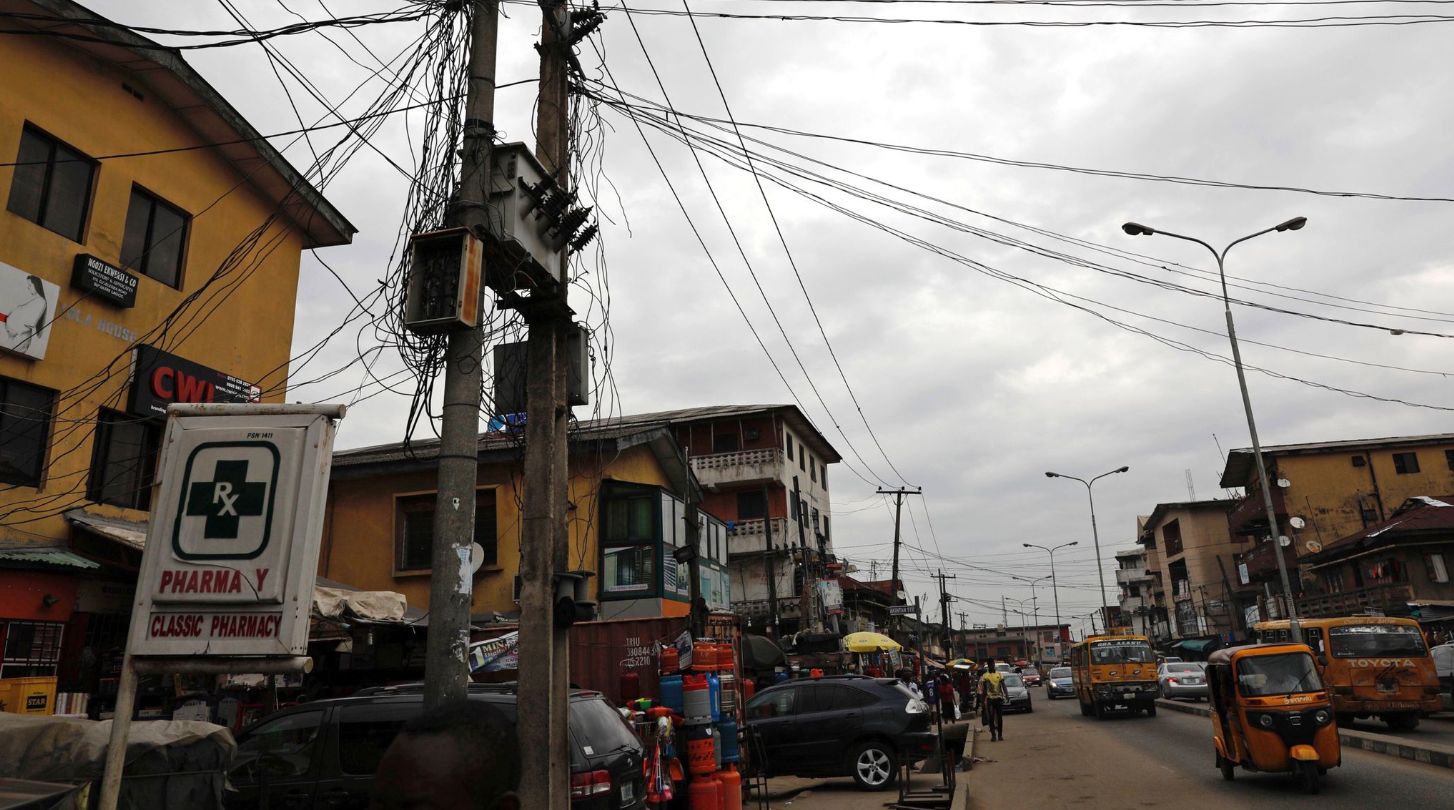
In places like Nigeria, power outages can be caused by anything from a national grid collapse to the neigbourhood transformer being stolen.
In South Africa, thanks to loadshedding, many people regularly go without power for 6 to 12 hours every day.
Many workers can relate to lights going off while on Zoom calls.
2. Internet speed and access
On average, Africa’s internet is much slower than the rest of the world.
South Africa, Africa’s fastest, has a median speed of 51.4 Mbps, well below the global average of 77.7 Mbps.
But in most of Africa, internet speed tops out at 8.18 Mbps.
At work, this shows up as patchy and tedious conversations.
3. Device access and cost
Even if the internet is fast and power holds up, having a reliable device doesn’t come cheap.
A good laptop can cost anywhere from $300 to $2,000.
For someone whose goal is to make money working online, that cost can be prohibitive for a start.
At Tech Safari, we work remotely across three countries in Africa.
And these problems are familiar to us.
We’ve ended meetings because the internet is too bad for us to communicate.
We’ve had power outages happen in the middle of calls.
And we’ve seen people have PC struggles while trying to co-work with teammates.
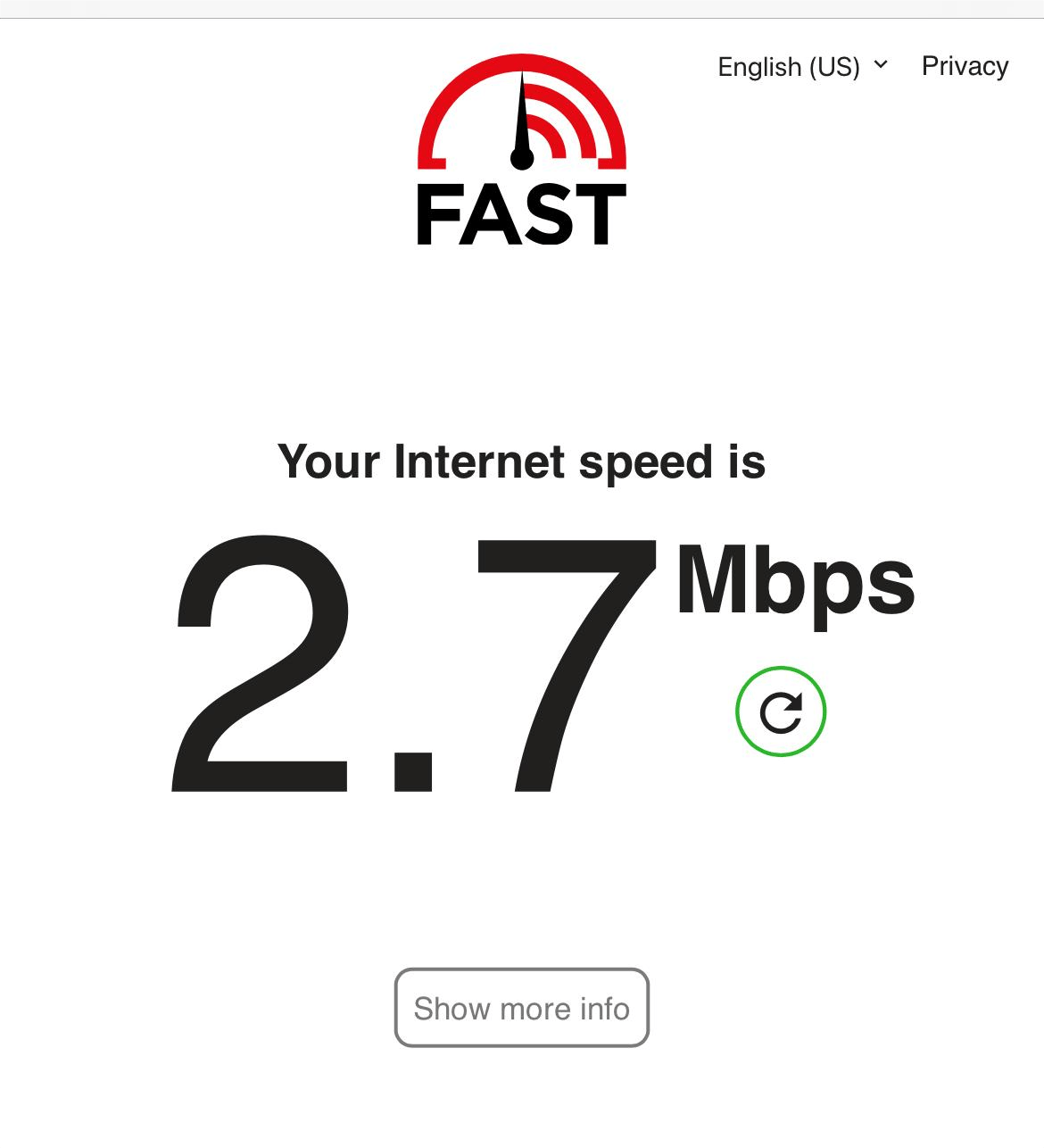
Here’s the result of a fairly recent internet speed test from one of our favorite teammates at Tech Safari
Luckily, we’re able to invest in backup power systems, better devices, and satellite internet.
But these options are only accessible to people earning enough money to acquire them in the first place.
For a lot of Africans just starting off on the remote work train, they still have to hack their way around these problems.
This puts them in a rut.
They need remote work to earn good money, but they also need to have enough money to participate in remote work.
If you zoom this out across thousands of skilled young Africans across the continent, what you get is not really a demographic dividend.
It’s a demographic discount
Africa’s problem has never been a dearth of tech talent.
For over 30 years, we’ve built world-class software.
In the 90s, Tara Systems, a Nigeria software shop, had built Microbank, a core banking software used by global banks like Chase and Bank of America.
Systemspecs, another local tech company started in the 90s, first created HumanManager, a HR software that won global awards.
And Mobiclicks, a South African company, pioneered mobile advertising before Google AdSense was even built.
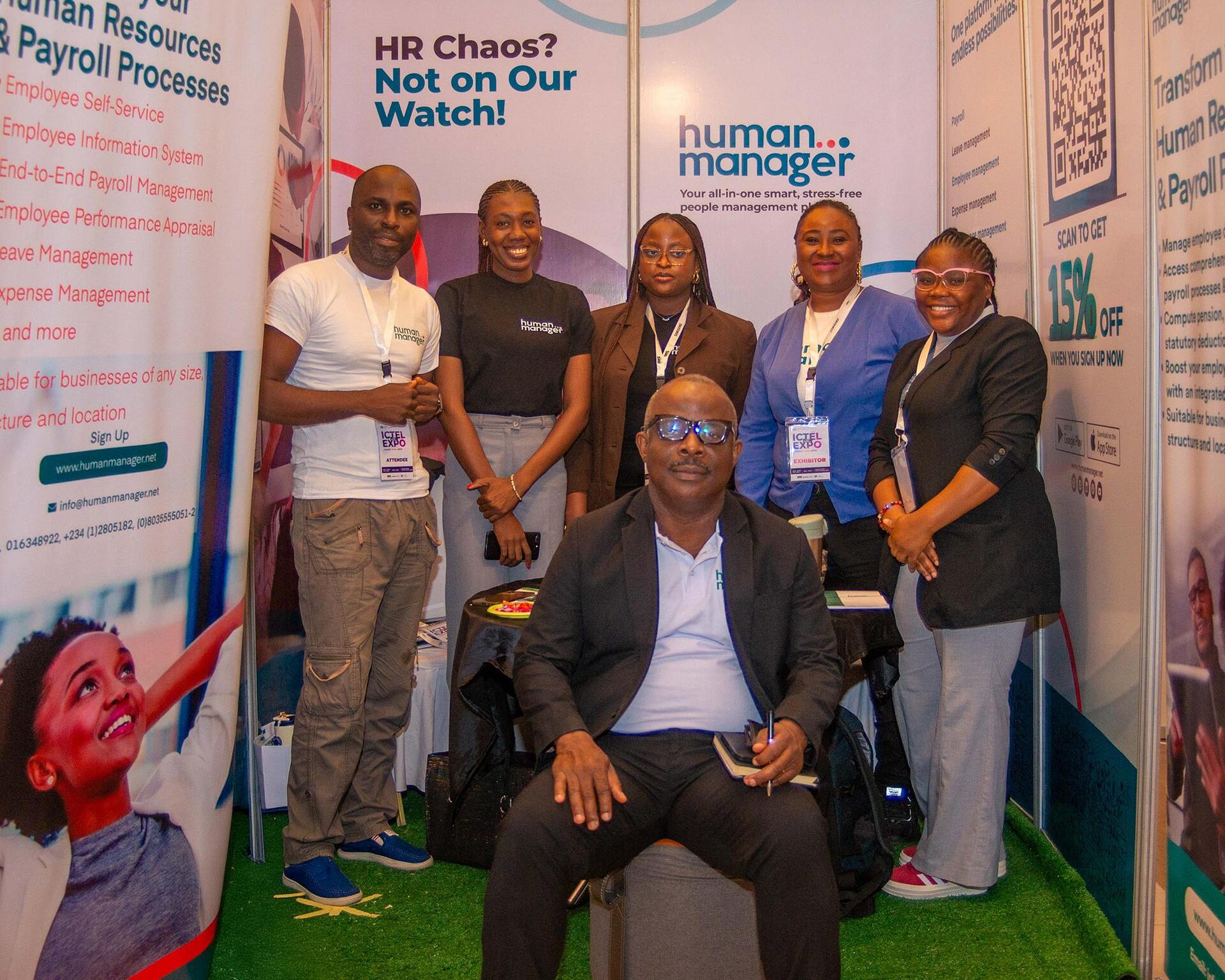
Today, HumanManager is still one of the leading payroll solutions providers in Africa.
The problem is that while talent has always been evenly distributed, opportunity wasn’t.
With global remote work, the doors of opportunity swung open for the average African in tech.
But thanks to bad infrastructure, a reputation tax is being imposed on African remote work.
Think about it.
Every culture exports an invisible product.
Japan exports quality.
Germany exports precision.
China exports scale.
Africa exports creativity and youth.
But as remote work grows, the world will also experience Africa’s reliability, bandwidth, and uptime.
That’s the new brand being built, one Zoom call at a time.
If the infrastructure falters, so will the reputation.
The world won’t see the constraints, only the outcomes.
And that perception will loop back, limiting opportunity even more.
Only 42% of Africans have the access they need to participate in the digital economy.
And just 18% own a computer.
These structural barriers will feed into how we access global opportunities.
In the end, the demographic dividend Africa hopes for may end up taking a big discount.
But what if we could learn from other markets?
In other remote hubs across the world, infrastructure is central.
India built huge hubs that gave many of its remote workers access to the best devices and fast internet at low daily rates, helping them keep a job abroad.
The Philippines has a strong cluster of hubs that support people working abroad.
And Singapore trains its young people in AI skills, while maintaining some of the best internet infrastructure in the world.
Today, one in every two AI labs has a Singaporean on its team.
If Africa solves these infrastructure problems, it won’t merely get more out of remote work.
It’ll unleash a whole generation of young people who find work online as easily as they find information.
How do you think Africa can build better remote work infrastructure?

How We Can Help
Before you go, let’s see how we can help you grow.
Get your story told on Tech Safari - Share your latest product launch, a deep dive into your company story, or your thoughts on African tech with 60,000+ subscribers.
Create a bespoke event experience - From private roundtables to industry summits, we’ll design and execute events that bring the right people together around your goals.
Hire the top African tech Talent - We’ll help you hire the best operators on the continent. Find Out How.
Something Custom - Get tailored support from our Advisory team to expand across Africa.

That’s it for this week. See you on Sunday for a breakdown on African tech news.
Cheers,
The Tech Safari Team
PS. refer five readers and you’ll get access to our private community. 👇🏾

What'd you think of today's edition? |

Wow, still here?
You must really like the newsletter. Come hang out. 👇🏾
